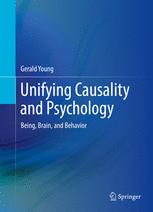

Most ebook files are in PDF format, so you can easily read them using various software such as Foxit Reader or directly on the Google Chrome browser.
Some ebook files are released by publishers in other formats such as .awz, .mobi, .epub, .fb2, etc. You may need to install specific software to read these formats on mobile/PC, such as Calibre.
Please read the tutorial at this link: https://ebookbell.com/faq
We offer FREE conversion to the popular formats you request; however, this may take some time. Therefore, right after payment, please email us, and we will try to provide the service as quickly as possible.
For some exceptional file formats or broken links (if any), please refrain from opening any disputes. Instead, email us first, and we will try to assist within a maximum of 6 hours.
EbookBell Team

4.8
14 reviewsThis magistral treatise approaches the integration of psychology through the study of the multiple causes of normal and dysfunctional behavior. Causality is the focal point reviewed across disciplines. Using diverse models, the book approaches unifying psychology as an ongoing project that integrates genetics, experience, evolution, brain, development, change mechanisms, and so on. The book includes in its integration free will, epitomized as freedom in being. It pinpoints the role of the self in causality and the freedom we have in determining our own behavior. The book deals with disturbed behavior, as well, and tackles the DSM-5 approach to mental disorder and the etiology of psychopathology. Young examines all these topics with a critical eye, and gives many innovative ideas and models that will stimulate thinking on the topic of psychology and causality for decades to come. It is truly integrative and original.
Among the topics covered:
Models and systems of causality of behavior.
Nature and nurture: evolution and complexities.
Early adversity, fetal programming, and getting under the skin.
Free will in psychotherapy: helping people believe.
Causality in psychological injury and law: basics and critics.
A Neo-Piagetian/Neo-Eriksonian 25-step (sub)stage model.
Unifying Causality and Psychology appeals to the disciplines of psychology, psychiatry, epidemiology, philosophy, neuroscience, genetics, law, the social sciences and humanistic fields, in general, and other mental health fields. Its level of writing makes it appropriate for graduate courses, as well as researchers and practitioners.